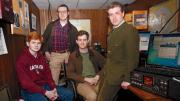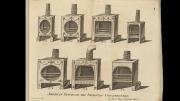Anne Daniels wonders if someone can identify the following statement, which was “evidently well-known in England in the 1890s”: Is not “every step we take in life a death in imagination?”
Nicholas Puner seeks “an excellent British whodunit from the early twentieth century that turns on the juxtaposition of train schedules as presented in Bradshaw, the compendium of British Rail.”
Marjorie Cohn would like to learn the exact source of a quotation “from one of the many books by Van Wyck Brooks. The author is referring to early art-history teaching at the Fogg Art Museum”: “It produced esthete valets for barbarian collectors.”
Richard Moskowitz asks if there is any historical evidence for the specific tournament near Paris referred to in “Le Pas d’Armes du Roi Jean,” a song by Camille Saint-Saëns based on the poem of the same title by Victor Hugo.
William Knecht appeals to readers to help him find a copy (“even to copy”) of a 1925 book or pamphlet, Captain Joseph Ross and descendants, records of N.Y. and Pa., by “(Rev) Charles Nelson Sinnett.” He has been unable to track one down even after multiple on-line catalog searches.
“whale Norwegian” (May-June). Eugene and Catheryn Lausch identified this “physics poem” as “A Fish Story,” by Henry Augustin Beers, a professor of English at Yale from 1875 to 1916. First published in his Odds and Ends: Verses, Humorous, Occasional, and Miscellaneous (1878), it was reprinted under “Facetiae” in his collected Poems (1921).
Send inquiries and answers to “Chapter and Verse,” Harvard Magazine, 7 Ware Street, Cambridge 02138.




